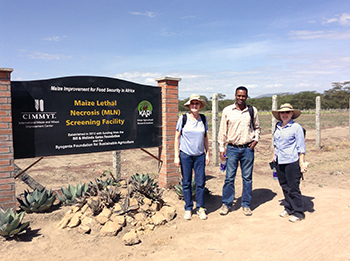Latest News Archive
Please select Category, Year, and then Month to display items
17 August 2020
|
Story Nitha Ramnath
|
Photo istock

Within the next five years, 60% of the world’s population will be living in urban areas. Urban living comes with large-scale economic advantages and society benefits from economies of scale. But, COVID-19 is challenging urban living. We have introduced the term ‘social distancing’ and some policy analysts have even argued for the de-densification of cities.
Join us for a discussion where our panellists will analyse this perceived conflict.
Date: Thursday, 27 August 2020
Time: 14:00 to 15:30 (South African Standard Time – GMT +2)
Please RSVP to Elelwani Mmbadi at
mmbadiE@ufs.ac.za no later than 25 August, upon which you will receive a Skype for Business meeting invite and link to access the webinar.
Speakers:
Prof Ivan Turok
Dr Geci Karuri-Sebina
Mr Thiresh Govender
Moderator:
Lochner Marais
Maize breeder rewarded for his research to enhance food security in Africa
2016-08-26

Prof Maryke Labuschagne from the UFS Department
of Plant Sciences, Berhanu Tadesse Ertiro, a
postgraduate student in Plant breeding at the UFS,
and Dr Peg Redinbaugh of the US Department of
Agriculture in Wooster, Ohio.
Photo: Supplied
Ethiopia is one of the African countries, deeply affected by food insecurity. Berhanu Tadesse Ertiro, a citizen from Ethiopia started his career - after graduating with his undergraduate degree in 2003 - as a junior maize breeder. Today he is pursuing his doctorate degree in Plant Breeding at the University of the Free State (UFS).
His research had made some great strides in contributing to food security in Africa. He recently received a fellowship from the prestigious Norman E. Borlaug Leadership Enhancement in Agriculture Program (Borlaug LEAP).
This fellowship is only awarded to students whose research has relevance to the national development of the student’s home country or region. The aim of these fellowships are to enhance the quality of thesis research of graduate students from developing countries who show strong promise as leaders in the field of agriculture and related disciplines.
Low soil fertility a major maize production constraint
Berhanu is also a visiting student at the International Maize and Wheat Improvement Center (CIMMYT) in Kenya, where he is running field experiments for his PhD thesis dissertation. His research focuses on Nitrogen Use Efficiency (NUE) and Maize Lethal Necrosis (MLN) disease tolerance. Low soil fertility and MLN are among the major maize production constraints in eastern and southern Africa, where maize is staple food.
Such hybrids have the potential to contribute greatly
towards food security among farmers and their
families through increased productivity.
The use of new tools could increase breeding efficiency and reduce the time needed for the release of new stress tolerant hybrids. Such hybrids have the potential to contribute greatly towards food security among farmers and their families through increased productivity. Berhanu is looking at the feasibility of genome wide selection for improvement of NUE in tropical maize.
Fellowship includes mentorship and supervision across borders
The programme supports engaging a mentor at a United States university and Consortium of International Agricultural Research Centers (CGIAR). During his fellowship, he will be supervised and mentored by Prof Maryke Labuschagne of the UFS, Prof Rex Bernando, a professor of Corn Breeding and Genetics at the University of Minnesota and Dr Biswanath Das of CIMMYT, Kenya.
As a LEAP fellow, Berhanu was invited to attend the 30th Annual World Food Prize events to take place in October 2016, in Des Moines, Iowa. The week will include his attendance at the Board for International Food and Agricultural Development meeting, participation at side-events at the Borlaug Dialogue International Symposium and the World Food Prize.